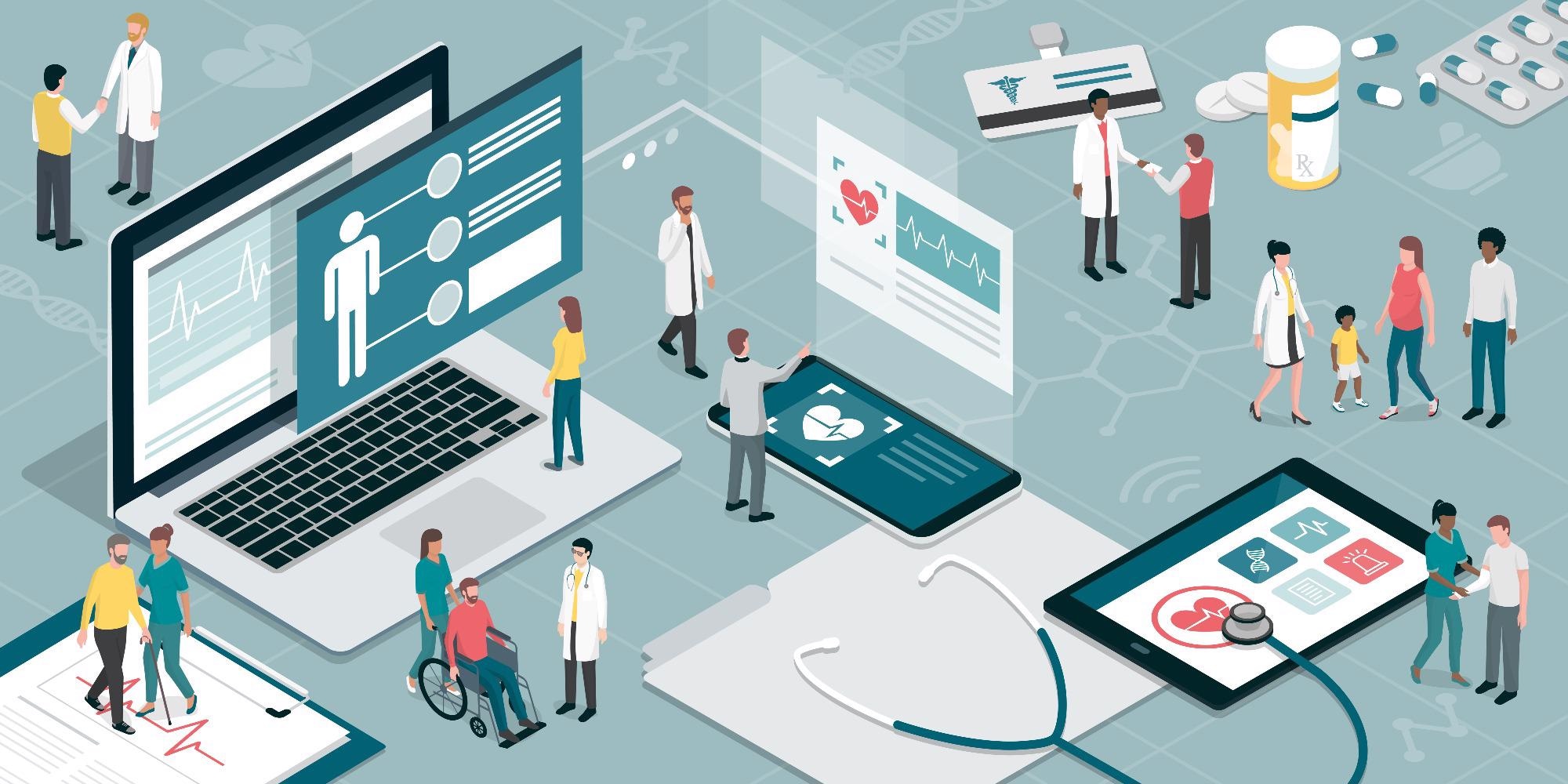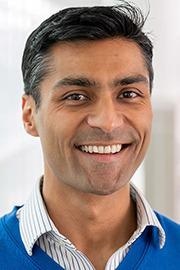Sponsored Content by NotableMar 28 2022
In this interview, we speak to Pranay Kapadia, CEO and co-founder at Notable, about their technology and how it is revolutionizing the field of intelligent automation within healthcare.
Please could you introduce yourself and tell us about your role at Notable?
My name is Pranay Kapadia and I am the CEO and co-founder at Notable. I started Notable alongside my co-founders to help health systems and caregivers thrive by digitizing their administrative operations. We tackle some of the industry’s hardest challenges across the continuum of care through our revolutionary intelligent automation platform, which aims to eliminate administrative work from the health system.
Also, I should mention that we’ve raised $126.5M in venture capital funding from top Silicon Valley investors including ICONIQ Growth, Greylock, F-Prime Capital, and Oak HC/FT. We’re using our momentum to accelerate much-needed change in the healthcare industry.
Notable is focused on providing intelligent automation for healthcare. Please can you tell us more about why Notable was founded and what some of your aims and missions are?
The genesis of Notable really came from my family of physicians that complained about being the highest-paid data collectors in the world. We actually looked at the number of manual, mechanical tasks spanning from the time a patient says they need care all the way to when the patient gets a bill that needs to be paid, and in that time there are between 20 to 35 different people involved. This means there are 20 to 35 different times to get something wrong.
This was a few years back and I was working at Blend at the time, which is where I met co-founders Adam Ting (now Notable’s Chief Product Officer) and Justin White, Ph.D. (now Notable’s Chief Technology Officer). Blend was dedicated to bringing digital transformation to banking and mortgages, a highly regulated space just like healthcare. And we thought, why couldn’t the three of us use our experience at Blend and Intuit to help bring digital transformation and automation to healthcare just like we had in finance?
We started small. It was originally just the three of us back in Burlingame, California, the heart of Silicon Valley. In true startup fashion, we worked out of my garage and borrowed space on the Stanford campus. Over time, we evolved the concept and refined our technology to take on the massive opportunity to profoundly reinvent an industry. We now work with some of the nation’s leading health systems like Intermountain, and in the past year, we’ve doubled headcount and plan to double again.
Notable has grown over time but the mission has remained, to enrich every patient-clinician interaction by simplifying how healthcare gets delivered. At Notable, we believe that the best way out of our capacity crisis and toward quality, personalized, patient-centered care is eliminating the $1 trillion administrative burden caused by repetitive, manual workflows.

Image Credit: elenabsl/Shutterstock.com
Currently, people involved in healthcare delivery spend huge volumes of time doing repetitive administrative tasks as opposed to serving their patients. Why is this such a huge problem and how does your intelligent automation platform help to tackle this?
There are three ways to think about this.
One: From a patient perspective, going through moments of friction – at a time when you need support – can be incredibly frustrating. The patient experience is broken. You can be put on hold for 15 minutes on a phone call or your insurance might not be accepted, or worse, you got connected with the wrong physician and they don't even see patients with the ailment you have. There’s just a never-ending slew of issues patients face that cause strife and needs to change.
Two: In order to solve these pain points, health systems have created never-ending queues of manual work for staff, or they use digital point solutions for each individual problem. None of these systems work together and they end up actually creating additional work for staff. That leads to employee frustration and burnout because they’re doing work they don’t want to do. Caregivers who go live with Notable tell us, “Oh my God, I hated this part of my job, and now I don’t have to do it anymore. I can focus on patient care.” That’s the kind of relief that we provide.
Three: The cost to the industry at large is enormous. It turns out that all the missed phone calls, all the work queues, all the faxes, all the back and forth that exists between patients and insurance companies and providers – costs the industry an estimate of 1.1 trillion dollars. One out of every three dollars is spent on administration, on things that don’t actually relate to the care you and I receive or deserve.
That’s why we do what we do. The complexity and fragmentation of the healthcare system has major costs to patients, healthcare staff, and the industry at large. Intelligent automation weaves together a fantastic patient experience across the continuum of care. It automates and digitizes the most crucial tasks that healthcare systems need to do, better than humans can in most cases. And it helps to profoundly bend the cost curve, getting to better outcomes for our partners and the industry at large.
At Notable, you have designed an intelligent automation platform for healthcare. Can you tell us more about this platform, how it works, and its applications within the healthcare industry?
Our mission is to simplify the complex and fragmented healthcare ecosystem and power and enrich the patient-caregiver interaction. So we always have those two constituents in mind with everything that we do. We built our beautiful, intuitive interfaces that patients of all age groups, patients of all demographics, can easily use to fill out their intake forms, upload their insurance cards, or pay copays on devices that they own or have access to.
For caregivers, we sweat the details on how to ensure they minimize their clicks, minimize the overhead that information takes up on their screens, and make sure patient data is accurately placed into every single screen they might use to provide the best care in a high-fidelity manner.
To power it all, there’s a low code / no-code platform that has key elements of intelligence baked in. Think of it as all the skills you could give your front desk, or your back office, or your call center. The front desk doesn’t need to type in numbers from insurance cards to verify eligibility – intelligent automation can do that. Care coordinators don’t need to spend hours per day scanning through charts to identify care gaps – just flip the switch and automation can help you find those care gaps. What if you could codify what your call center does, to make phone calls out to patients? Our platform knows the best time to reach out to patients, via email, text, or voice. We can activate them better than any call center could.
All of the intelligence for machine vision, extracting data, watching events, are things we’ve codified into our intelligence layer. And then lastly, all of this sits on a pure foundation of seamless integration because we have to ensure that every element is in the right place for our caregivers.

Image Credit: fizkes/Shutterstock.com
What advantages does your platform have not only for the people involved in healthcare delivery but for healthcare systems as a whole?
Health systems today are facing major challenges in achieving strategic growth with limited capacity, and trying to provide the highest quality of care in as personalized a way as possible. The most significant challenge is the staffing shortage with the Great Resignation. So they’ve got to be able to solve all those problems while not being able to staff every role that they need, and while dealing with wage inflation without matching growth and revenue. It’s not sustainable unless we dramatically, profoundly change how this should work.
Notable comes in as the seamless automation platform that helps increase capacity and efficiency, drive growth, boost patient satisfaction, and reduce denials. We allow health systems to proactively reach out to patients in a personalized way, to schedule patients with the right provider using AI matching, and to digitize data from the patient all the way through the payor without needing hundreds of work queues. We help drive patient satisfaction of at least 96% for every one of our health systems. We can reduce access-related denials by up to 81%, and we can increase their efficiency by 4-5x.
The ongoing COVID-19 pandemic has also highlighted the importance of intelligent automation solutions to help manage patient data. What involvement did Notable have within the pandemic?
In our work with North Kansas City Hospital and Operation Safe, we scheduled over 80,000 vaccine appointments in two months. 85% of Operation Safe’s almost 100,000 registrants completed their consent forms and health questionnaires through Notable. Human staff would not have been able to keep up. The end result was that Clay County, where this was based, ended up with some of the lowest COVID-19 confirmed cases in the nation.
We were also able to support customers like Lowell Community Health Center’s work in providing equitable care by developing multi-language support for vaccine scheduling and intake forms, increasing their patient engagement rates by 30% for patients with limited English proficiency. The virus has really dramatized the disparity in health outcomes for underprivileged populations. Reaching out to the patient in their native language is crucial to driving better health outcomes.
Not only were we able to help with these situations, but the fact that we were able to digitally engage patients of all age groups, patients who are visually impaired, patients with limited English proficiency, is a testament to the power of accelerating digital capabilities going forward, in particular for accessibility.
Are you hopeful that we will see more and more healthcare providers turning to automated solutions to help manage their administrative tasks in the future?
Not only am I hopeful, it’s inevitable. It’s inevitable that we as patients are going to demand a better experience that equals other industries. It’s inevitable that health systems are going to realize that throwing more administrative staff at every problem is unsustainable. We’re just accelerating the timeline by which this happens. We’re incredibly grateful to partner with some of the leading health systems that want to ensure that they stay ahead of the curve. The challenges that they’re facing out there are not going to stop and technology needs to come to their assistance. We’re overdue.
Artificial intelligence has seen huge advancements in recent years, especially within the healthcare and life sciences industry. What do you believe the future looks like for automation within healthcare?
First, we are focusing on the patient-caregiver experience and we aim to make that seamless, accessible and personalized.
That’s what clinicians want, to be able to practice at the top of their license. We need to first automate away the tasks that shouldn’t need people. Then we can start providing richer and richer insights at the point of care, or before the patient even comes in… but there’s a lot that needs to happen between now and then.

Image Credit: Blue Planet Studio/Shutterstock.com
What is next for Notable? Are you involved in any exciting upcoming projects?
We have big plans. We’re working on more integrations across more platforms and systems, that’s a given. We are also working to add more intelligent skills to the platform, and more capabilities to connect with patients and caregivers.
There’s a lot on our product roadmap that we can’t wait to unveil. Stay tuned.
Where can readers find more information?
Keep an eye on our website: https://www.notablehealth.com/
And more specifically, learn more about what we’ve previously accomplished from our customer success stories, and look through our resource library.
About Pranay Kapadia
Pranay Kapadia is Co-founder and CEO at Notable. After years of hearing his family of physicians object to the state of technology in healthcare, Pranay founded Notable to enrich the patient-provider interaction and eliminate the manual overhead in the industry.
Prior to Notable, Pranay worked on the Blend platform that powers mortgages and lending in the US, and led every major product line at Intuit, redefining personal finance, taxes, and small business accounting.